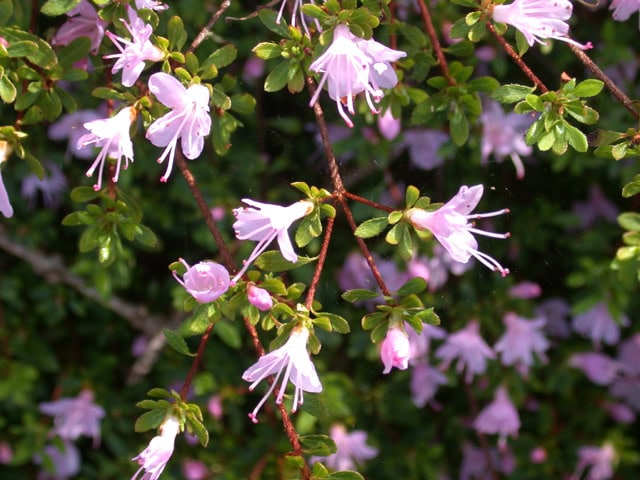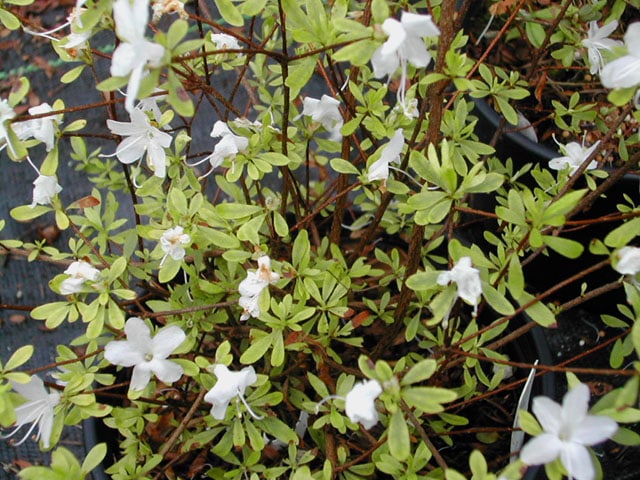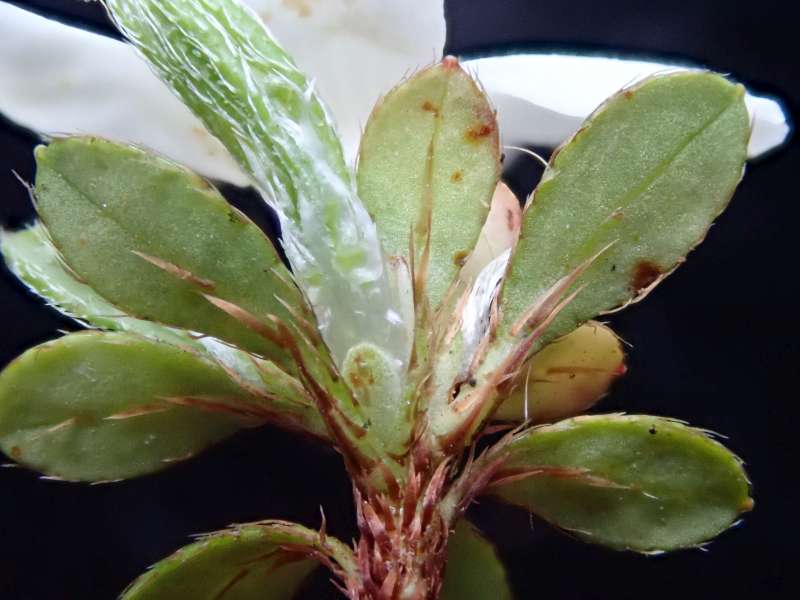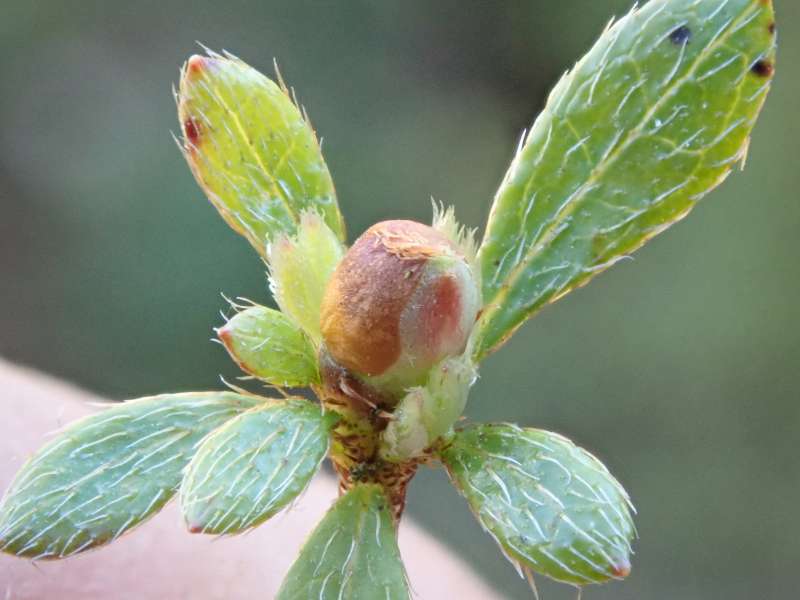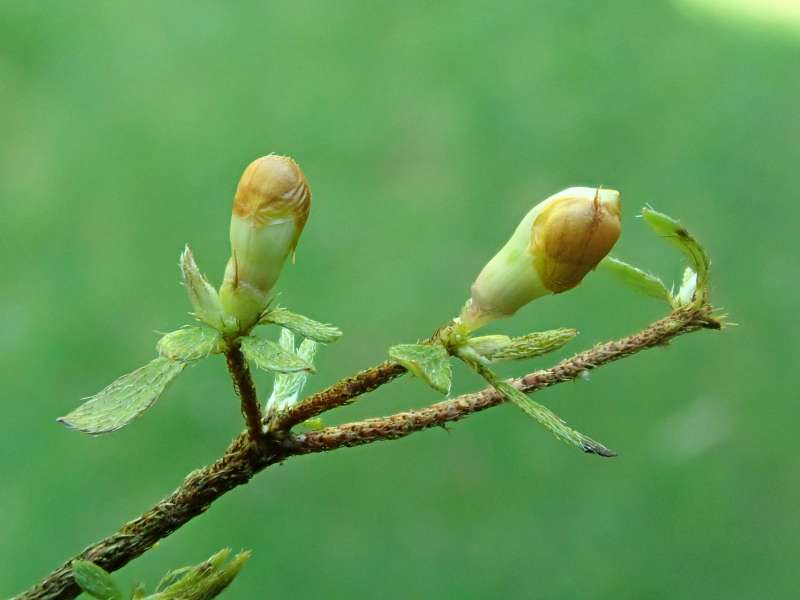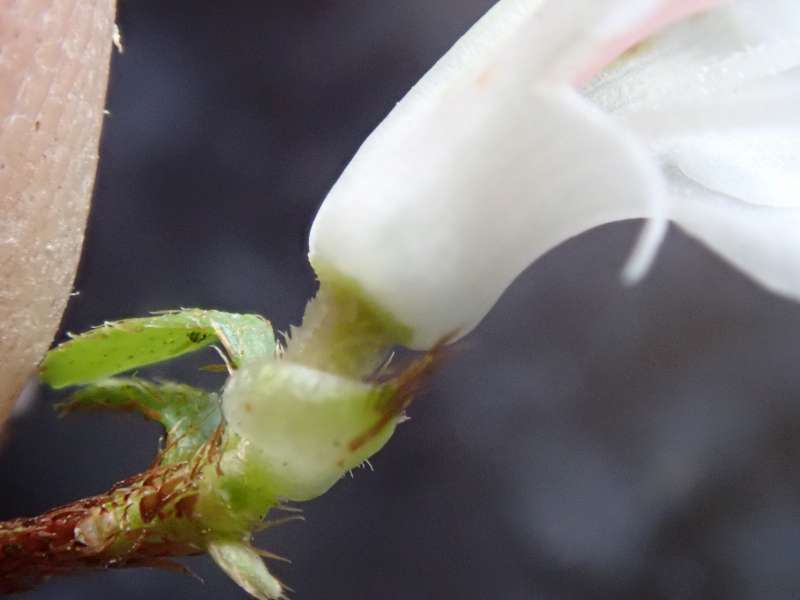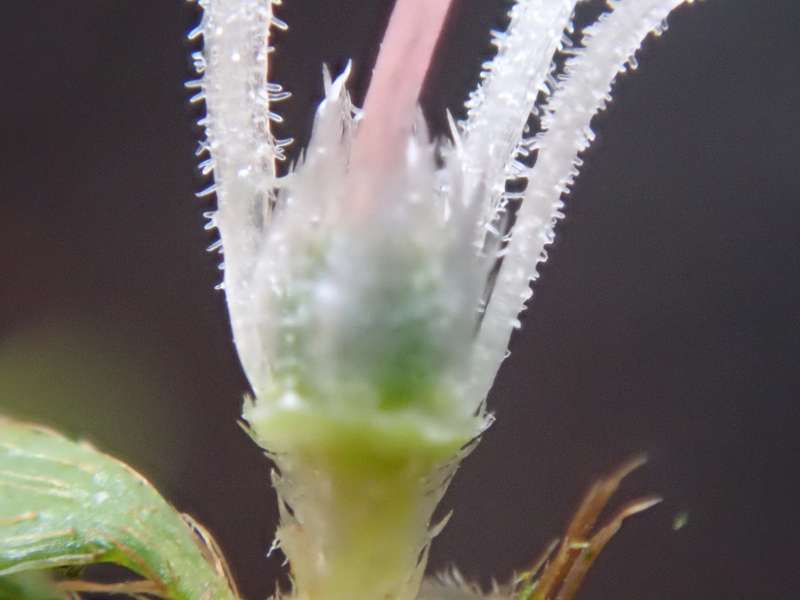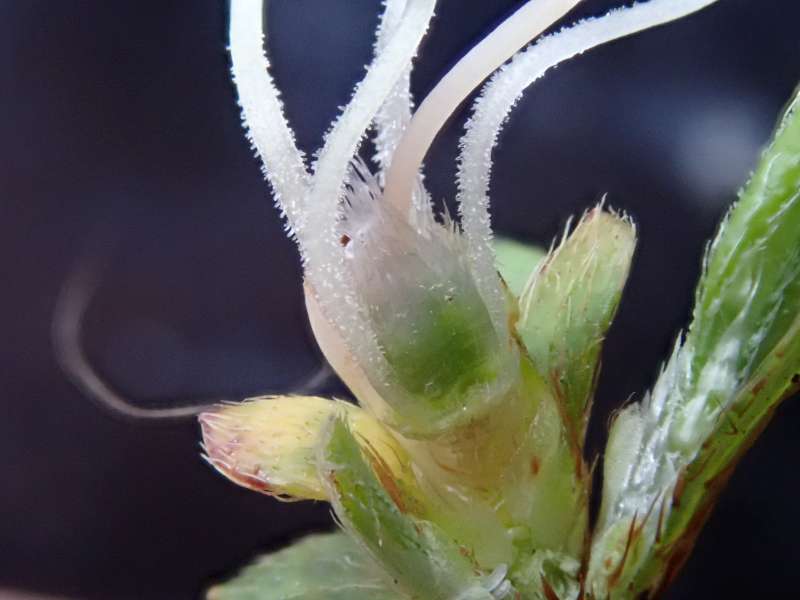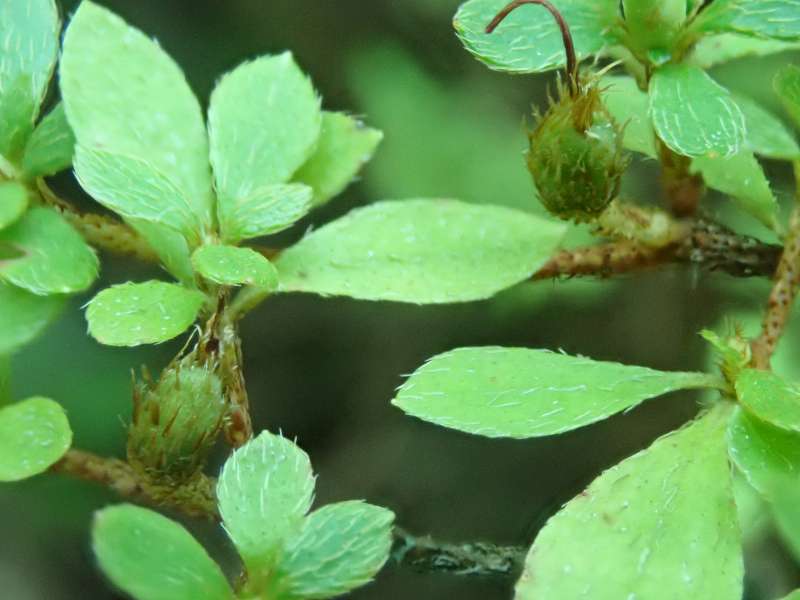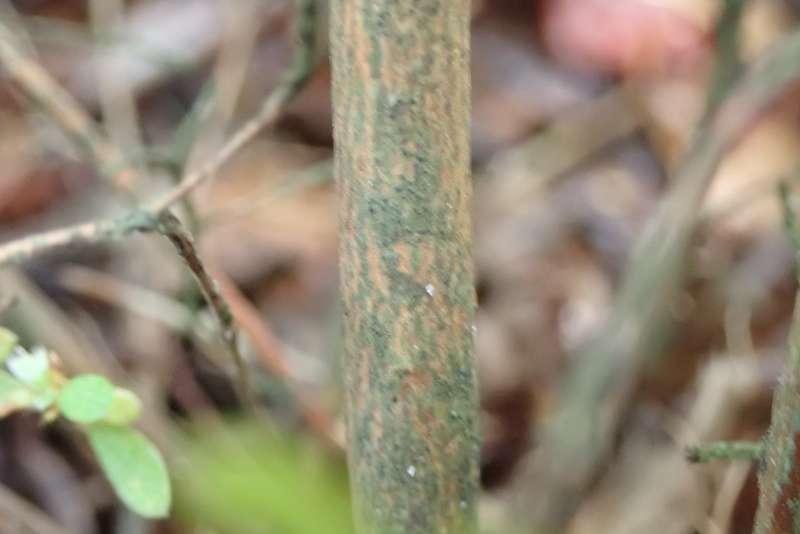Rhododendron serpyllifolium
Billeder af Rhododendron serpyllifolium
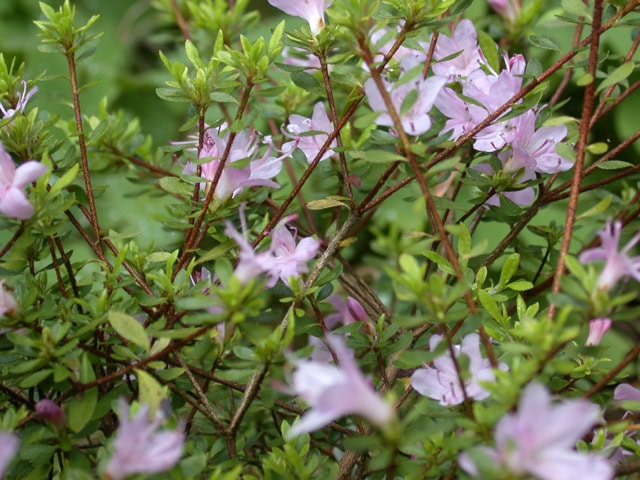
Beskrivelse
R. serpyllifolium (Tsutsusi). Et tæt-forgrenet stedsegrøn til delvis løvfældende azalea med tynde grene og små hårede blade op til omkring en halv cm. i længden. Blomsterne kommer i maj og er rosa til hvide. Vildtvoksende i S-Japan og en god arter for varmt og fugtigt klima.
Hans Eiberg
R. serpyllifolium frø. Nyt og gammelt frø (brunt). Foto: Hans Eiberg
ARS
Kew’s Herbarium
RBGE Herbarium; R. serpyllifolium (data?)
Trees and Shrubs Online; R. serpyllifolium (A. Gray) Miq.
Low, much-branched shrub; young shoots covered with adpressed flattened chestnut-brown hairs. Leaves of one kind, 0.3–1 × 0.3–0.5 cm, obovate-oblong to elliptic, apex obtuse or acute, upper surface with scattered brown bristles, lower surface with hairs mainly on midrib, arising from pustules; petioles and pedicels covered with bristles. Flowers 1(–2) per inflorescence; calyx small; corolla rose-pink or occasionally white, funnelform, c.17 mm; stamens 5; ovary densely covered with pale flattened hairs, style glabrous. Flowering April-May. Royal Horticultural Society (1997)
Distribution Japan C & S
Habitat 300–900 m
RHS Hardiness Rating H5
Conservation status Least concern (LC)
Taxonomic note This species does not have any close allies. Royal Horticultural Society (1997)
A low evergreen azalea, perhaps 2 or 3 ft high, with the slender wiry stems covered thickly with appressed, linear, dark brown bristles, that point towards the end of the shoot. Leaves narrowly oval or obovate, 1⁄4 to 3⁄4 in. long, 1⁄8 to 1⁄4 in. wide, dark green, and thinly furnished above and on the margins with bristly hairs, paler and with a few bristles beneath, base tapering to a very short stalk. Flowers mostly solitary at the end of short twigs, on pedicels 1⁄8 in. or less long, opening in May. Calyx small, with five rounded bristly lobes. Corolla pale rose or white, funnel-shaped, about 3⁄4 in. across, with five oblong lobes. Stamens five. Ovary clad with appressed hairs; style glabrous. Bot. Mag., t. 7503. (s. Azalea ss. Obtusum)
Native of central and southern Japan. This quaint and pretty little shrub is not often seen, though it is said to be quite hardy. It was introduced for Messrs Veitch by Charles Maries, and flowered with them in 1882. The white-flowered form has been distinguished as f. albiflorum Makino.

